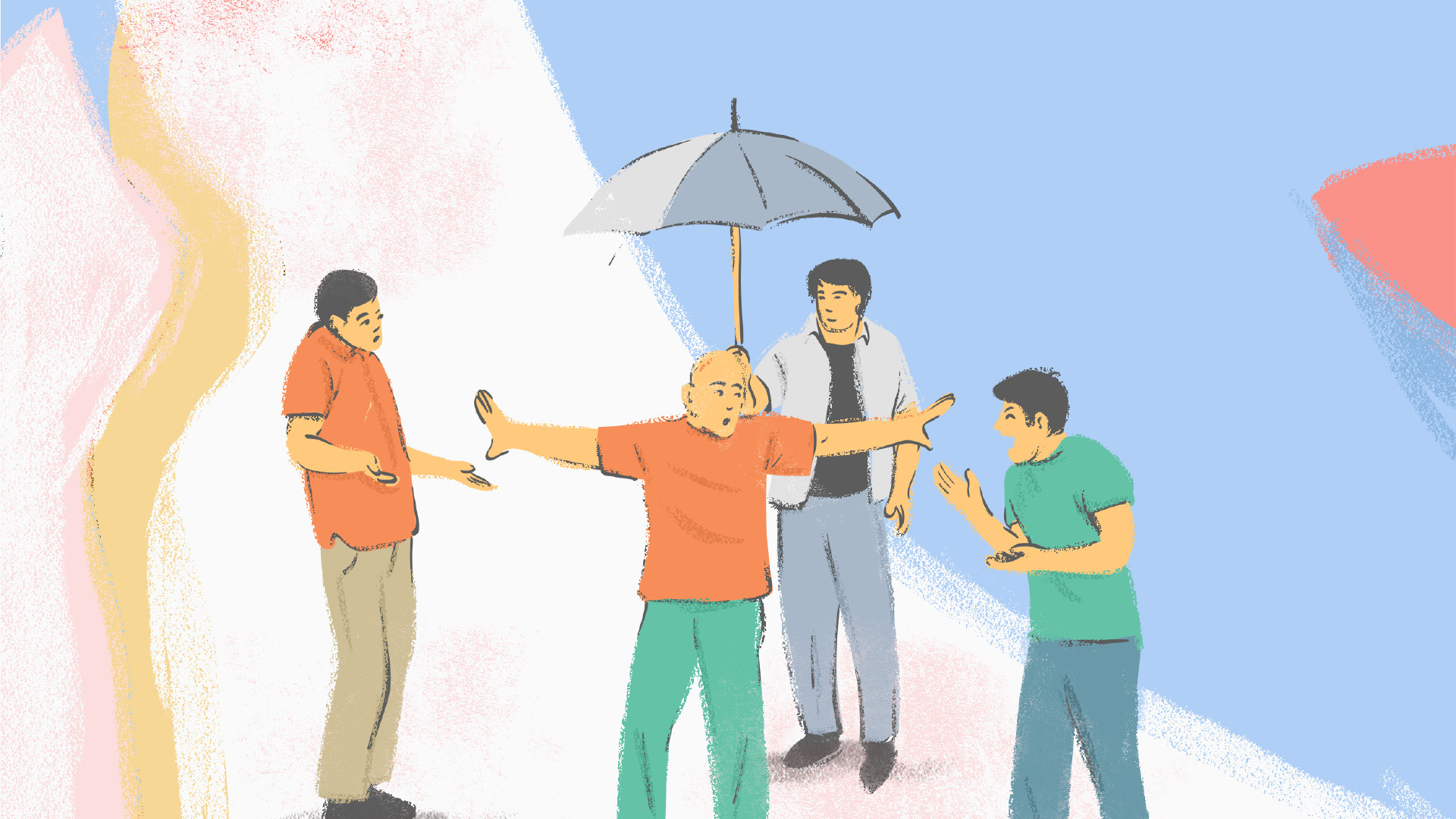- Arbitration
- Banking & Finance
- Capital Markets
- Commercial
- Competition
- Construction & Infrastructure
- Corporate / Mergers & Acquisitions
- Corporate Services
- Corporate Structuring
- Digital & Data
- Dispute Resolution
- Employment & Incentives
- Family Business & Private Wealth
- Innovation, Patents & Industrial Property (3IP)
- Insurance
Find a Lawyer
Book an appointment with us, or search the directory to find the right lawyer for you directly through the app.
Find out more
Level Up: Unlocking Financial Potential In The Middle East
Welcome to this edition of Law Update, where we focus on the ever-evolving landscape of financial services regulation across the region. As the financial markets in the region continue to grow and diversify, this issue provides timely insights into the key regulatory developments shaping banking, investment, insolvency, and emerging technologies.


2025 is set to be a game-changer for the MENA region, with legal and regulatory shifts from 2024 continuing to reshape its economic landscape. Saudi Arabia, the UAE, Egypt, Iraq, Qatar, and Bahrain are all implementing groundbreaking reforms in sustainable financing, investment laws, labor regulations, and dispute resolution. As the region positions itself for deeper global integration, businesses must adapt to a rapidly evolving legal environment.
Our Eyes on 2025 publication provides essential insights and practical guidance on the key legal updates shaping the year ahead—equipping you with the knowledge to stay ahead in this dynamic market.
The leading law firm in the Middle East & North Africa region.
A complete spectrum of legal services across jurisdictions in the Middle East & North Africa.
-
Practices
- All Practices
- Banking & Finance
- Capital Markets
- Commercial
- Competition
- Construction & Infrastructure
- Corporate / Mergers & Acquisitions
- Corporate Services
- Corporate Structuring
-
Sectors
-
Country Groups
-
Client Solutions
Today's news and tomorrow's trends from around the region.
17 offices across the Middle East & North Africa.
Our Services
 Back
Back
-
Practices
- All Practices
- Banking & Finance
- Capital Markets
- Commercial
- Competition
- Construction & Infrastructure
- Corporate / Mergers & Acquisitions
- Corporate Services
- Corporate Structuring
- Digital & Data
- Dispute Resolution
- Employment & Incentives
- Family Business & Private Wealth
- Innovation, Patents & Industrial Property (3IP)
- Insurance
- Intellectual Property
- Legislative Drafting
- Private Client Services
- Private Equity
- Private Notary
- Projects
- Real Estate
- Regulatory
- Tax
- Turnaround, Restructuring & Insolvency
- White Collar Crime & Investigations
-
Sectors
-
Country Groups
-
Client Solutions

- Law Firm
- /
- Insights
- /
- Law Update
- /
- September 2019
- /
- The UAE Insurance Authority is now a Dispute Resolution Body
The UAE Insurance Authority is now a Dispute Resolution Body
Yazan Al Saoudi - Partner - Insurance / Shipping, Aviation & Logistics
Mona Allabban
 Introduction
Introduction
On 1 May 2018, the Federal Law No. (3) of 2018 amending certain provisions of Federal Law No. (6) of 2007 on the Establishment of Insurance Authority & Organization of Its Operations (the ‘Amending Law’) came into force and introduced numerous amendments that directly affect the insurance sector in the UAE. Amongst those amendments are the set of procedures to be followed in processing insurance claims and resolving disputes between insurers and insureds or beneficiaries. At this juncture, the Amending Law sets out the process by which insurance claims should be dealt with internally by insurers as well as the process for insureds and/or beneficiaries who wish to challenge the insurers’ decisions before the Insurance Authority (‘IA’).
Notably, the Amending Law stipulates that insurance related disputes will not be heard by local courts unless such disputes have first been considered by the Dispute Resolution Committees (the ‘DR Committee(s)’) to be set up by the IA pursuant to a resolution issued by the IA Board of Directors. According to the Amending Law, the aforementioned IA resolution would set out amongst others, how the DR Committee(s) will be formed together with details regarding their jurisdiction, powers as well as the procedures to be followed in the dispute resolution process. The IA resolution will also identify the types and branches of insurance which may be resolved before the DR Committee(s).
On 15 July 2019, the IA issued Board Resolution No. (33) of 2019 Concerning the Regulation of the Committees Responsible for the Settlement and Resolution of Insurance Disputes (the ‘IA Resolution’). The IA Resolution will come into force three months after the date of its publication in the Official Gazette (the IA Resolution was published in issue no. 659 on 31, July of 2019).
Formation of the DR Committees and their Jurisdiction
According to the IA Resolution, each DR Committee will consist of a chairman and two or more members IA employees. Additionally, each DR Committee will have a substitute chairman and members which assumingly would be engaged in the absence of the main members. The IA Resolution further provides that the IA may assign the chair position in the DR Committees to a judge to be delegated in consultation with the relevant authority.
Pursuant to Article (4) of the IA Resolution, the DR Committee(s) will consider insurance disputes of all classes and types arising from complaints made by an insured, beneficiary or an affected person who has a right to bring a dispute against an insurance company incorporated in the UAE and any foreign insurance company licensed to carry out insurance activities in the UAE through a branch or through an insurance agent. This means that any claim by an insurance company against the insured would fall outside the jurisdiction of the DR Committee(s).
Article (5) of the IA Resolution also sets out the types of actions and disputes that are beyond the jurisdiction of the DR Committee(s), namely:
- orders, summary and interim actions and orders, or precautionary attachment;
- the insurance disputes heard before courts prior to the date of the IA Resolution coming into force; and
- insurance disputes which are subject to an arbitration clause.
Dispute Resolution Procedures and Referral of Disputes to the DR Committee(s)
Upon the occurrence of an insurance dispute, a written complaint must be submitted to the IA via its electronic system by the insured, the beneficiary or the affected person and the complainant must attach all relevant information and details along with supporting documents.
The IA will then review the complaint and request the insurance company to provide clarification within five working days. If the complainant is not satisfied with the clarification provided by the insurance company, the complainant can object and request the dispute be referred to the DR Committee(s). The IA is responsible for registering the complaint to the relevant DR Committee(s) within three working days of the complainant’s objection.
At the initial stage, the DR Committee(s) should attempt to settle the dispute amicably within a maximum period of 15working days, which may be extended by similar period(s) by mutual consent of the parties or by a decision of the chairman of the relevant DR Committee(s)If a settlement is reached between the disputing parties, the terms of the settlement will be documented in a settlement deed that is attested by the DR Committee(s).
If the dispute is not resolved amicably, the DR Committee(s) will proceed to hear the dispute and resolve it in accordance with the dispute resolution procedures set out under the IA Resolution. Although the DR Committee(s) are not bound to follow the rules and procedures set out under the UAE Civil Procedures Law, it appears that the dispute resolution procedures resemble, to some extent, the litigation process followed by local courts.
The DR Committee(s) have been granted extensive powers and authorities similar to those granted to local courts by virtue of the UAE Civil Procedures Law No. (11) of 1992 and its amendment (‘Civil Procedures Law’)and the Law of Evidence in Civil and Commercial Transactions No. (19) of 1992. For instance, DR Committee(s) are entitled to hear witnesses, appoint experts and award costs. Not only that, Article (14) of the IA Resolution permits the complainant to join parties to the dispute and permits the insurance company (‘Respondent’) to join other corporate defendant(s) to the dispute if it has legal recourse against the said defendant(s) (this provision is almost identical to Article 94 of the Civil Procedures Law). This arguably indicates that insurers may be able to join re-insurers to the complaint or, if applicable, the corporate person that caused the loss.
It is pertinent to mention that once the DR Committee(s) concludes its investigation procedures and receives all relevant information and details, the DR Committee(s) is required to issue its final decision within 20 working days. If deemed necessary, the DR Committee(s) may extend this duration for similar periods.
The DR Committee(s) Decision
Pursuant to Article 16(3) of the IA Resolution, decisions issued by DR Committee(s) may be challenged by the concerned party before the competent court of first instance within a period of 30 days which starts to run from the following day on which the party was notified of the DR Committee(s) decision. If the decision is not challenged within the aforementioned time-frame, the decision will be considered final and enforceable. The IA Resolution provides that DR Committee(s)’ decisions are considered execution deeds in accordance with the applicable laws. This means that once the decisions issued by the DR Committee(s) becomes final and conclusive (upon lapse of the challenge period), such decisions may be enforced through the competent execution department in the country.
It is worth noting that both the Amending Law and the IA Resolution are silent on the issue of whether the ruling of the relevant court of first instance would be considered final or would be subjected to further stages of challenge before the courts of appeal and cassation.
Furthermore, given the technical expertise and background of the members of the DR Committee(s), it is unclear how strict legal challenges that may be raised by the disputing parties will be tackled, such as time prescription or if the DR Committee(s) will even entertain such legal challenges. Also, given that the issue of insurance claims’ time prescription is not addressed under the Amending Law and the IA Resolution, it remains unclear whether the filing of the complaint before the IA Committee would interrupt the running of the applicable time prescription period.
Conclusion
The introduction of the Amending Law and the IA Resolution represent a significant shift in the resolution of insurance disputes in the UAE. Although the new dispute resolution mechanism may seem to have added an additional layer to the insurance dispute resolution proceedings, nevertheless, given the technical experience of the DR Committee(s)’ members, it is expected that the technical findings of the DR Committee(s) will have considerable value in the dispute and before the relevant local courts.
More clarity regarding the practical application and impact of the IA Resolution will come to light in the near future after the IA Resolution comes into force and the new system is fully operational and tested.
Al Tamimi & Company’s Transport & Insurance team regularly advises on regulatory insurance matters. For further information, please contact Yazan Al Saoudi (y.saoudi@tamimi.com) or Malek Zreiqat (m.zreiqat@tamimi.com).
Stay updated
To learn more about our services and get the latest legal insights from across the Middle East and North Africa region, click on the link below.


